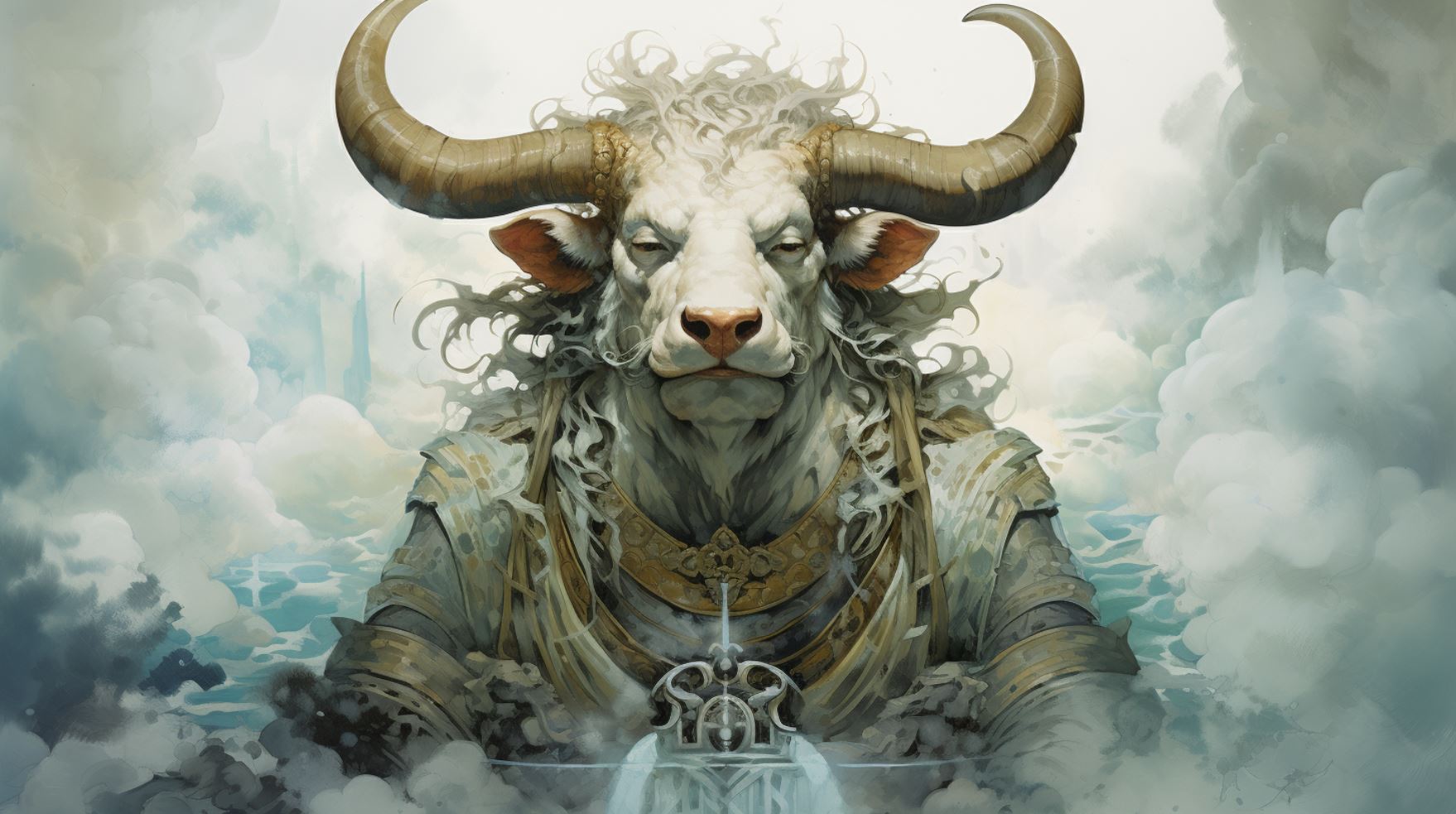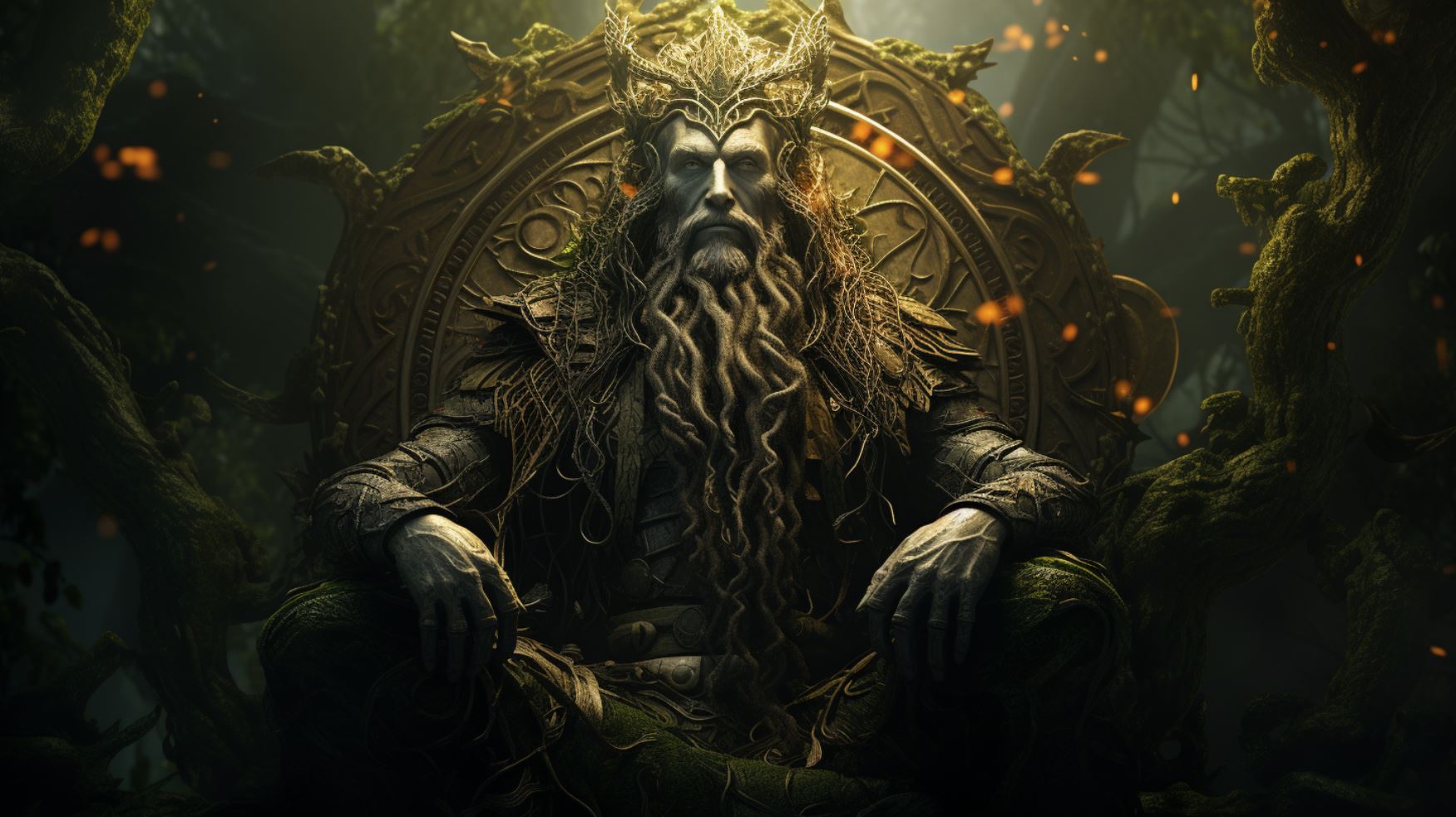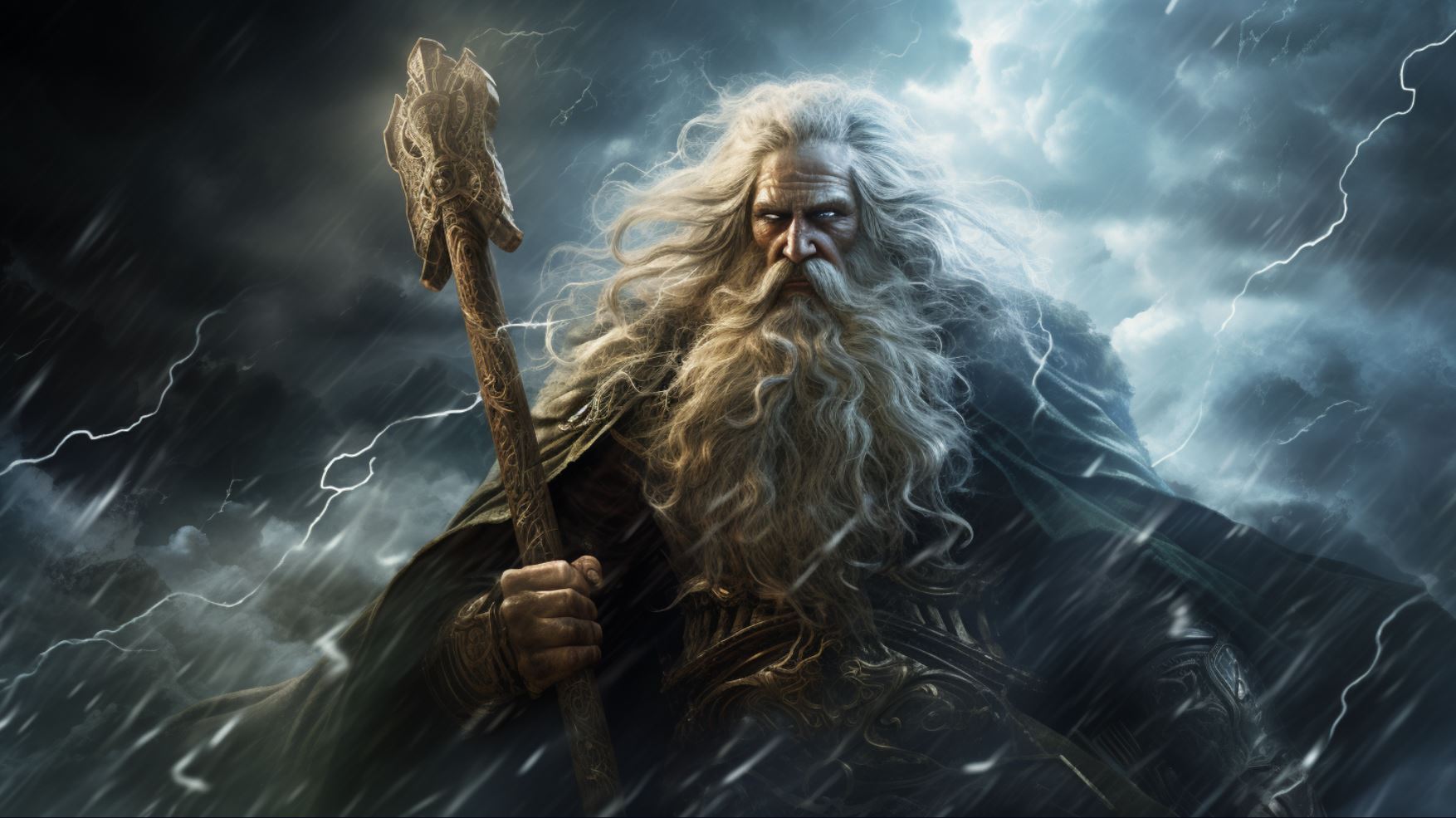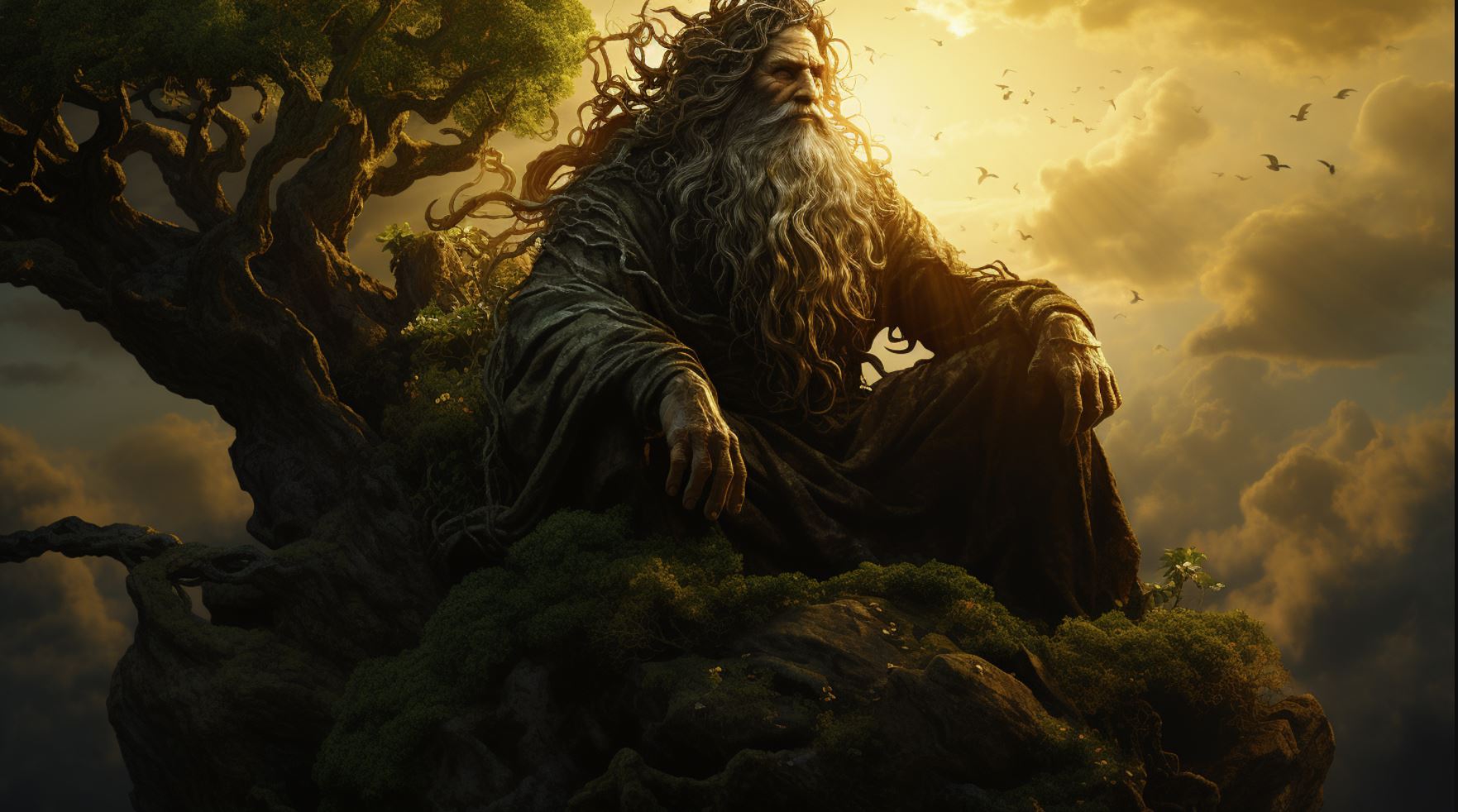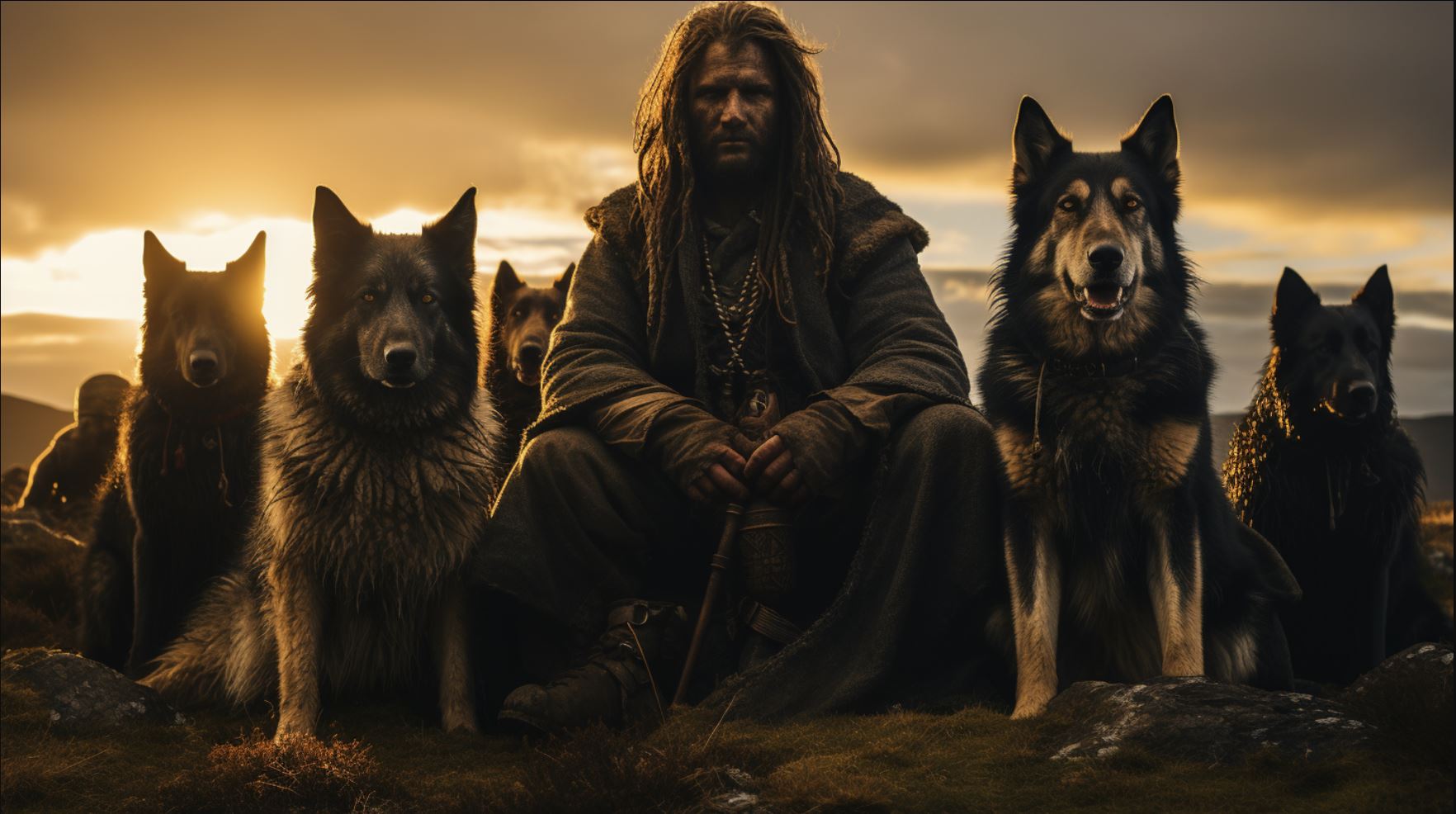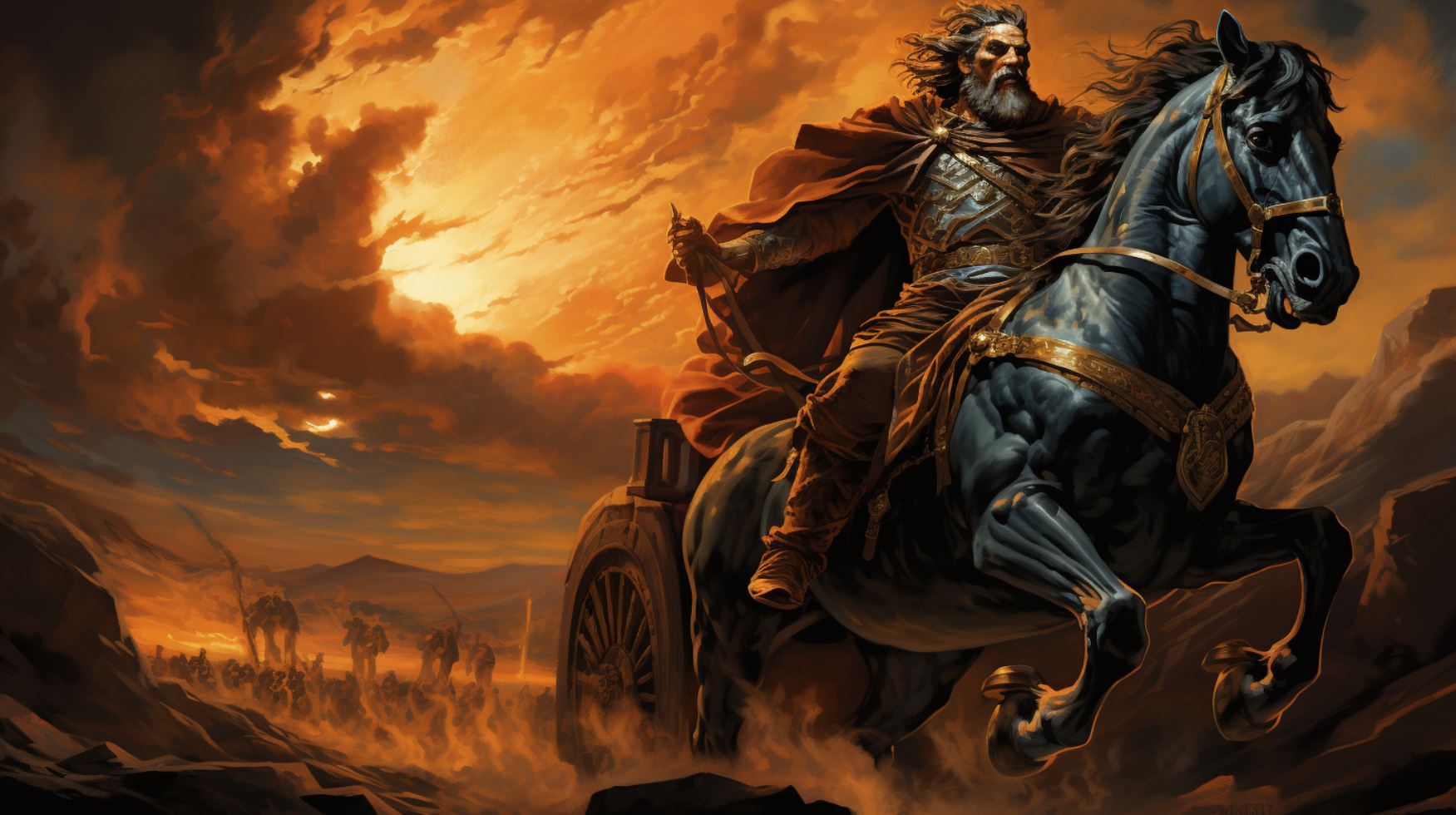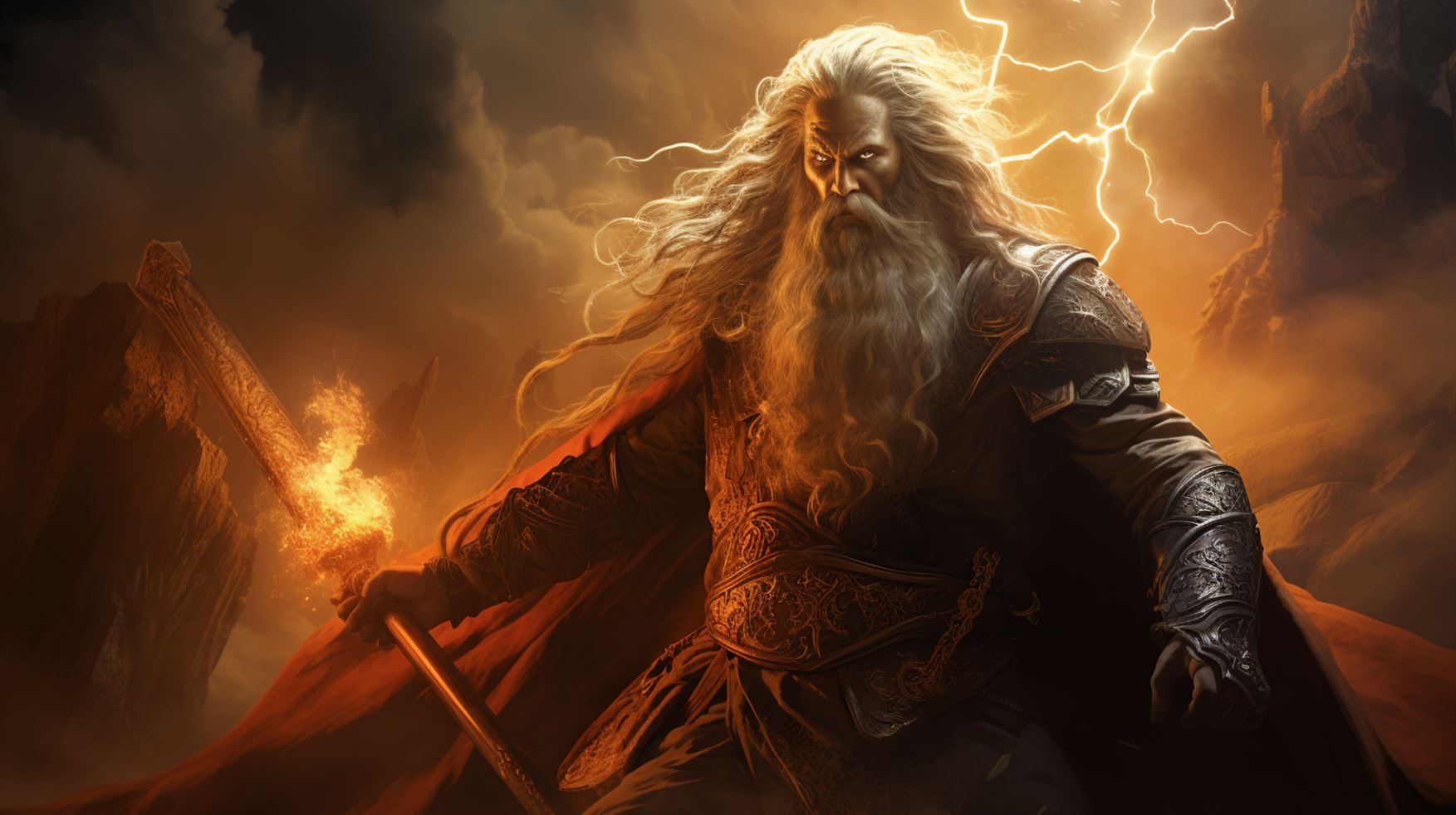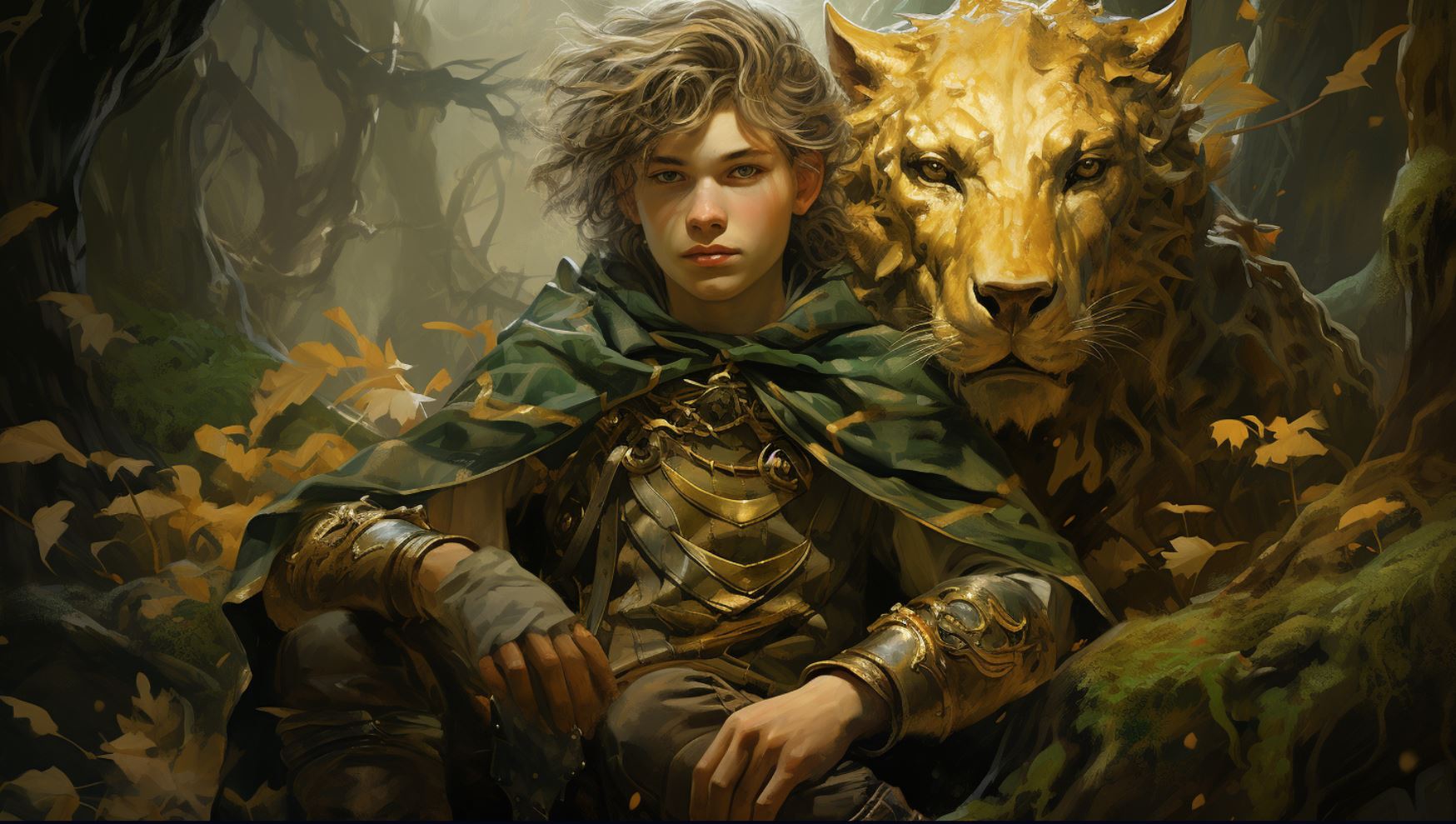‘Moccus God: Unveiling the Divine Pig Deity of Celtic Mythology’
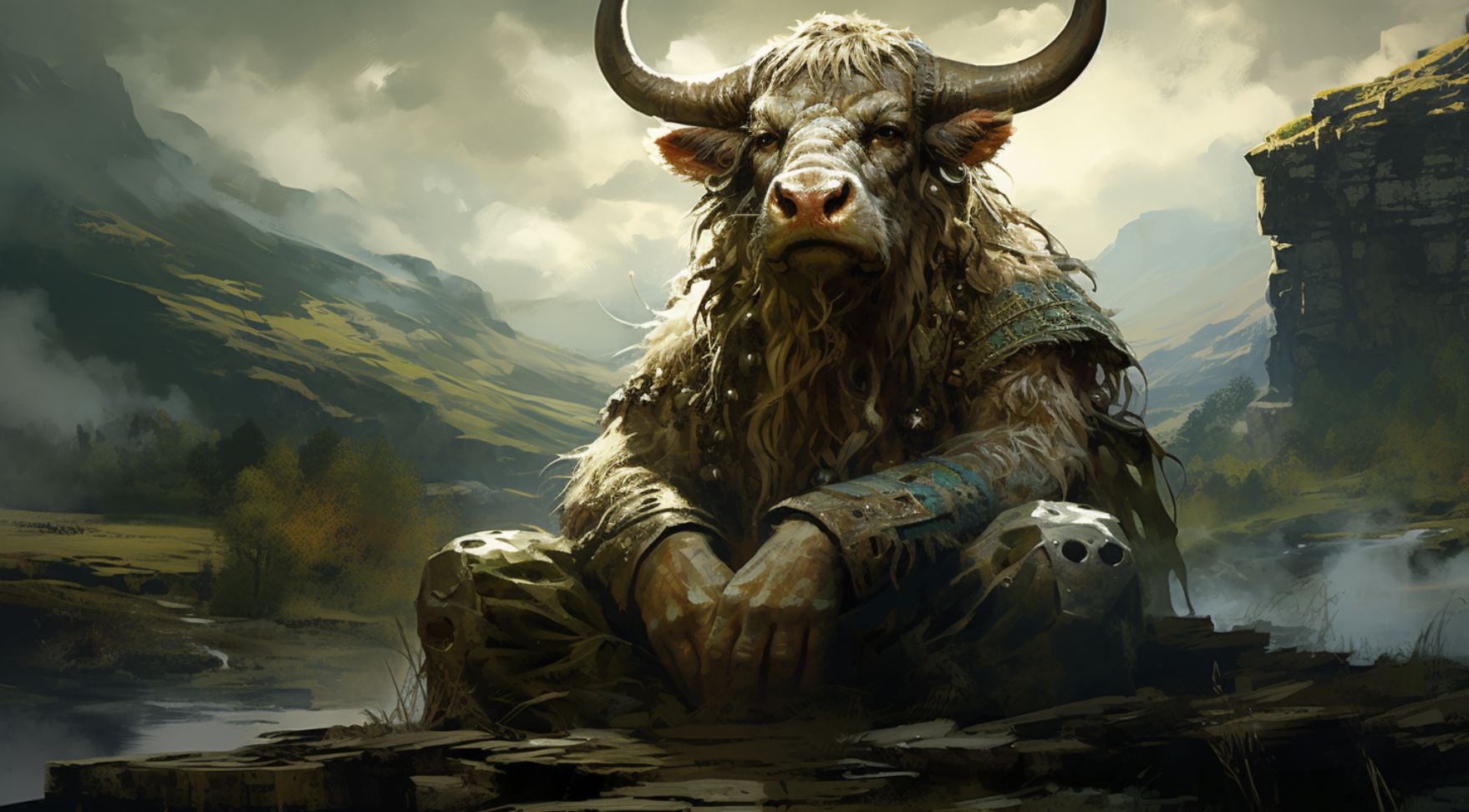
Moccus God, a Celtic deity associated with the divine pig, holds great significance in Celtic mythology. Representing fertility and protection, Moccus is believed to have been worshipped in Gaul, specifically in Langres, France, and Forum Vibii Caburrum, Italy.
The Romans often equated Moccus with their god Mercury. While limited information exists about Moccus’ cult and specific attributes, archaeological evidence suggests the devotion and reverence of his worshippers. Unraveling the mysteries surrounding Moccus God unveils connections with other Celtic deities and sheds light on the ancient stories and depictions associated with this revered god.
Celtic Mythology and the Importance of Moccus God
Celtic mythology is replete with a pantheon of deities, each playing a unique role in the belief system of the ancient Celts. One such deity of significance is Moccus God, whose reverence and importance in Celtic culture cannot be understated.
Moccus, whose name translates to ‘jabalí’ or ‘cerdo’ in Spanish, holds a central place in the mythological narratives of the Celts.
In Celtic mythology, the pig holds a sacred status as a divine animal linked to the Other World.
Legends speak of the pig being bestowed upon virtuous kings as a gift from the Lord of the Other World. The hunt for the mighty boar is as prominent a theme in Celtic myths as cattle rustling, with figures like Arthur and Fionn boasting tales associated with this exhilarating sport.
The role of the pig extends beyond mere hunting and into the realm of politics. In the ancient text Mabinogion, ‘porqueros’ or pig-keepers were depicted as advisors to the kings, emphasizing the divine importance of the pig in Celtic mythology.
Moccus is venerated as a deity among the Gauls, and his name is closely aligned with the Celtic word for ‘cerdo.’ At times, the Romans even identified him with their god Mercury, indicating the cultural interactions and assimilation that occurred between the Celtic and Roman pantheons.
While the specifics of Moccus’ cult are scantily known, it is established that his worshippers made votive offerings and dedications to honor him. The proto-Celtic root of his name, *mokku, directly links him with the essence of the pig, solidifying his role as the divine figure associated with this sacred animal in Celtic belief systems.
Archaeological evidence discovered in Langres, France, and Forum Vibii Caburrum, Italy, provides substantial proof of the existence and fervor of Moccus’ worship amongst ancient Celtic communities. These findings underline the deep reverence and dedication shown towards this deity, shedding light on the importance of Moccus in Celtic religious practices.
Unveiling the intricate mysteries surrounding Moccus God allows for an exploration of ancient depictions and representations of this divine figure, as well as potential connections and associations with other Celtic deities.
Delving into the mythological stories associated with Moccus provides insights into the cultural and spiritual significance attributed to this enigmatic god.
In conclusion, Moccus God occupies a pivotal place in Celtic mythology, representing fertility, protection, and divine blessings.
Despite limited information about his cult and specific attributes, the evidence of his worship and the ardent devotion of his followers solidify his importance as a revered deity in Celtic religion and mythology.
The Significance of the Swine in Celtic Culture
In Celtic culture, the swine held a deep significance, embodying symbolism and spiritual connotations. This section explores the various aspects related to the role of pigs in Celtic religion and mythology, shedding light on their divine origins, their association with fertility and protection, as well as their pivotal role in Celtic rituals and beliefs.
The Divine Origins of the Swine
According to Celtic myth, the swine were believed to originate from the Other World, being bestowed upon virtuous kings by the Lord of the Other World himself. This divine connection painted the swine as sacred animals, representing an otherworldly link between the mortal realm and the realm of the gods.
Moccus God: Protector and Symbol of Fertility
Moccus, the Celtic god associated with the swine, assumed the role of protector and symbol of fertility. Worshipped as a deity with the power to safeguard and bless, Moccus was venerated for his ability to grant abundance, prosperity, and protect the people, which solidified his pivotal position within Celtic culture.
Moccus and the Role of Pigs in Celtic Religion
The role of pigs in Celtic religion was multifaceted, extending beyond their symbolic importance. Pigs were revered as animals that facilitated communal feasts and celebrated gatherings, providing sustenance and nourishment during important religious ceremonies.
Their presence in Celtic religious rituals represented the intertwining connection between humans, nature, and the divine.
In conclusion, the significance of the swine in Celtic culture cannot be overstated. From their divine origins to their association with Moccus, the protector and symbol of fertility, these sacred animals played a crucial role in Celtic religion and mythology, serving as a bridge between the mortal world and the realm of the gods.
Their presence in rituals and their crucial role in communal feasts emphasized their deep spiritual and cultural importance within Celtic society.
The Cult of Moccus in Gaul and Beyond
The worship of Moccus, the divine pig deity, held a significant place in ancient Celtic culture. This section explores the cult of Moccus in Gaul, specifically focusing on two notable locations: Langres, France, and Forum Vibii Caburrum, Italy.
Moccus’ Worship in Langres, France
Langres, a city in northeastern France, was an important center for the cult of Moccus. Archaeological evidence reveals the existence of dedicated sacred spaces and altars where worshippers offered their devotion and sacrifices to this revered deity.
The presence of these artifacts signifies the religious significance and popularity of Moccus’ cult in this region.
Moccus’ Cult in Forum Vibii Caburrum, Italy
Forum Vibii Caburrum, located in present-day Italy, also shows traces of Moccus’ worship. Excavations have uncovered artifacts and dedicatory inscriptions, indicating the presence of a cult devoted to this divine pig deity.
The discovery of these remains reinforces the belief that Moccus held a prominent role in ancient Celtic religion beyond the boundaries of Gaul.
Both Langres and Forum Vibii Caburrum provide valuable insights into the spread of Moccus’ cult and the extent of his worship throughout different regions. These archaeological findings confirm the wide-ranging reverence and popularity of Moccus among Celti people, emphasizing the deity’s importance in Celtic religious practices.
- Langres, France, served as a significant center for Moccus’ cult.
- Archaeological evidence in Langres points to dedicated sacred spaces and altars for worship.
- Forum Vibii Caburrum, Italy, also displays traces of Moccus’ cult.
- Artifacts and dedicatory inscriptions found in Italy strengthen the evidence of Moccus’ worship beyond Gaul.
- These discoveries highlight the widespread reverence and popularity of Moccus among Celtic communities.
Key Points:
Moccus God: Associated with Mercury in Roman Mythology
In Roman mythology, Moccus is often linked with the Roman god Mercury. The Romans, known for assimilating deities from various cultures, saw similarities between Moccus and their own deity associated with commerce, travel, and communication.
As a result, they identified Moccus as a counterpart to Mercury.
The association between Moccus and Mercury can be traced back to the Roman conquest of Gaul, where the cult of Moccus was prevalent.
The integration of Celtic and Roman religious beliefs led to the merging of these two entities. This syncretism allowed for the interpretation of Moccus as a divine figure with attributes similar to those of Mercury.
Mercury, in Roman mythology, was revered as the messenger of the gods and was associated with trade, wealth, and eloquence.
This connection likely reflected the perceived qualities and roles of Moccus within the Celtic pantheon. The amalgamation of their characteristics and symbolism further solidified Moccus’ status as a significant deity in the Roman context.
Moccus and Mercury: Shared Attributes and Symbolism
Both Moccus and Mercury were associated with travel and protection. Mercury, as the god of commerce, facilitated safe journeys, safeguarded travelers, and protected merchants. Similarly, Moccus, as an amalgamation of Celtic and Roman beliefs, was seen as a guardian on journeys and a protector of prosperity.
Moreover, Mercury was often depicted with a caduceus, a herald’s staff entwined with serpents, symbolizing his role as a messenger. This symbol of authority and communication may have influenced depictions of Moccus, further intertwining their identities.
Interpretations and Cultural Exchange
The association of Moccus with Mercury offers insights into the cultural exchange between the Roman and Celtic civilizations. It demonstrates the flexibility and adaptability of religious beliefs, allowing for the assimilation and integration of deities into different pantheons.
Furthermore, the assimilation of indigenous deities into the Roman religious framework enabled the Romans to establish a sense of familiarity and continuity with the conquered peoples. The identification of Moccus as a counterpart to Mercury served to bridge the gap between the Gallic and Roman religious practices, facilitating communication and cultural understanding.
- Mercury and Moccus: Converging Roles and Symbolism
- Mergus: The Gallo-Roman Deity
- Depictions of Moccus and Mercury: A Comparative Analysis
In conclusion, the association between Moccus and Mercury in Roman mythology highlights the cultural exchange and assimilation of deities.
It demonstrates the fluidity of religious beliefs and the interpretation of divine entities within different contexts. The amalgamation of their qualities solidifies Moccus’ significance as a revered deity, bridging the gap between Celtic and Roman religious practices.
Unveiling the Mysteries: Interpretations and Speculations Surrounding Moccus God
The ancient depictions and representations of Moccus offer intriguing insights into the worship and symbolism surrounding this Celtic deity. These depictions, discovered through archaeological findings, depict Moccus as a divine figure often associated with the form of a pig or a boar.
These images highlight the significance of Moccus as a protector and symbol of fertility in Celtic culture.
Ancient Depictions and Representations of Moccus
1. Stone carvings: Many stone carvings found in various Celtic regions depict Moccus as a boar with mighty tusks and fierce eyes, symbolizing strength and power. Often, these carvings were found in sacred sites and temples, indicating Moccus’ importance in religious rituals.
2. Coin imagery: Ancient coins featuring Moccus further emphasize his divine status. These coins often portray Moccus with distinct boar-like features, reinforcing his connection to fertility and abundance.
3. Statues and figurines: Some well-preserved statues and figurines reveal Moccus in various forms, sometimes accompanied by other Celtic deities.
These representations suggest the deity’s ability to forge connections with other gods within the Celtic pantheon, potentially signifying his importance in the wider mythology.
Moccus and Other Celtic Deities: Connections and Associations
Moccus’ presence in Celtic mythology extends beyond his individual role.
There are notable connections and associations with other deities that provide valuable insights into the interconnected nature of Celtic cosmology.
1. Moccus and Cernunnos: Cernunnos, the horned god of abundance and fertility, shares similarities with Moccus.
As both deities are associated with symbols of fertility and protection, it is speculated that they may represent different aspects of the same divine force.
2. Moccus and Brigid: The Celtic goddess of healing, poetry, and smithcraft, Brigid, is sometimes associated with the boar, symbolizing strength and protection.
This connection suggests a potential link between Moccus and aspects of Brigid’s protective qualities.
3. Moccus and Epona: The goddess Epona, often associated with horses and fertility, has also been connected with Moccus.
The shared emphasis on fertility and abundance in their symbolism suggests a complementary relationship between the two deities.
Exploring the Mythological Stories of Moccus
While specific mythological stories about Moccus may be scarce, there are indications of his involvement in ancient Celtic narratives. Some myths associate Moccus with epic hunting adventures, where he aids heroic figures like Arthur and Fionn.
These stories highlight Moccus’ importance as a guiding force and a provider of sustenance within the Celtic mythological context.
Overall, the ancient depictions, connections with other deities, and hints of mythological stories surrounding Moccus contribute to the ongoing exploration and speculation surrounding this intriguing Celtic deity.
Archaeological Evidences of Moccus’ Cult
The archaeological findings provide valuable insights into the worship and significance of Moccus in Celtic culture. Excavations in different regions have unearthed remarkable artifacts that shed light on the religious practices and beliefs surrounding this enigmatic deity.
Discoveries in Langres, France
Langres, France, has been a significant site for unearthing evidence of Moccus’ cult. Excavations have revealed several temples and sanctuaries dedicated to the worship of Moccus. These structures were adorned with intricate carvings and sculptures depicting the divine pig deity, emphasizing its importance in the spiritual and religious life of the Celts.
The excavations have also yielded a plethora of offerings and votive objects dedicated to Moccus. These include pottery fragments, coins, and small figurines depicting pigs, symbolizing devotion and seeking the divine blessings of Moccus.
The presence of such items suggests a flourishing religious practice centered around this beloved deity.
Artifacts Unearthed in Forum Vibii Caburrum, Italy
Forum Vibii Caburrum, located in Italy, has also provided significant archaeological evidence related to the cult of Moccus. Excavations in this region have unearthed a diverse range of artifacts associated with the worship of the divine pig god.
Among the notable discoveries are altars and inscriptions dedicated to Moccus, indicating active religious rituals and offerings made to honor the deity. These inscriptions provide valuable insights into the nature of the cult and the reverence bestowed upon Moccus by its followers.
Archaeologists have uncovered numerous votive objects, including statuettes of pigs and other animal representations associated with Moccus. These artifacts further highlight the deep-rooted belief in Moccus’ protective and fertility attributes, as well as the desire to seek divine favor and blessings.
Unveiling Moccus’ Influence through Archaeology
Through these archaeological discoveries, we can begin to unravel the significance of Moccus in Celtic mythology and religious practices. The temples, sanctuaries, and artifacts found in Langres, France, and Forum Vibii Caburrum, Italy, provide tangible evidence of the veneration and devotion shown to this mysterious deity.
By studying these archaeological remnants, we gain valuable insights into the role of Moccus within Celtic society, as well as its associations with fertility, protection, and other aspects of ancient Celtic beliefs.
These discoveries continue to deepen our understanding of Moccus’ place within the pantheon of Celtic gods, leaving us with a fascinating glimpse into the spiritual world of the ancient Celts.
Moccus, a fascinating figure in Celtic religion and mythology, holds a position of reverence within the spiritual beliefs of the ancient Celts.
This section delves into the significance of Moccus as a divine presence, exploring the characteristics and roles attributed to this esteemed deity.
Moccus: Guardian of Cultivated Lands
As a revered deity in Celtic religion, Moccus is often associated with the protection of cultivated lands. Celts believed that Moccus bestowed his blessings upon the crops, ensuring fertility and abundance.
His role as a guardian of agricultural activities emphasized the importance of agriculture in Celtic society.
Moccus and Harvest Festivals
Harvest festivals held great significance in Celtic culture, and Moccus was an integral part of these celebrations. These festivals honored the bountiful yield and expressed gratitude to Moccus for his influence in ensuring a successful harvest.
It was believed that Moccus’ presence ensured the sustenance and prosperity of the community.
The Feast of Moccus
Among the various harvest festivals, the Feast of Moccus held a special place. It was a time of joyful gatherings, where offerings and prayers were dedicated to Moccus. This feast was an occasion for communal celebration, showcasing the deep-rooted connection between the Celtic people and their revered deity.
Connections with Celtic Animal Symbolism
Celtic mythology often associated animals with specific qualities and symbolism, and Moccus found a significant place within this intricate web of symbolism. Pigs, in particular, held important connotations in Celtic culture.
Their innate connection to fertility, abundance, and the Otherworld made them an apt representation of Moccus’ divine essence.
The Boar and the Divine Realm
The boar, embodying strength, courage, and tenacity, represented a link between the mortal realm and the divine realm. Moccus, as a deity associated with the boar, embodied these qualities and served as a connection to the mystical and ethereal aspects of Celtic cosmology.
Celebrating the Sacred Swine
Sacred swine, believed to be Moccus’ favored animal companions, were celebrated in rituals and ceremonies. Their presence was deemed essential in invoking Moccus’ blessings and ensuring a prosperous and harmonious existence for the Celtic communities.
Moccus’ Influence on Celtic Mythology
Moccus’ presence extends beyond his role as a guardian and provider. He is intricately woven into the tapestry of Celtic myths and legends, leaving enduring impressions on the collective imagination of the Celts.
Exploring these mythological stories sheds light on his interactions with other deities and his significant contributions to the Celtic pantheon.
In summary, Moccus emerges as a revered deity in Celtic religion and mythology, known for his protective nature, association with cultivation, and connection to the divine realm. His presence in harvest festivals, symbolism, and mythological narratives paints a vivid picture of his profound influence on the spiritual and cultural fabric of the Celtic people.
.

